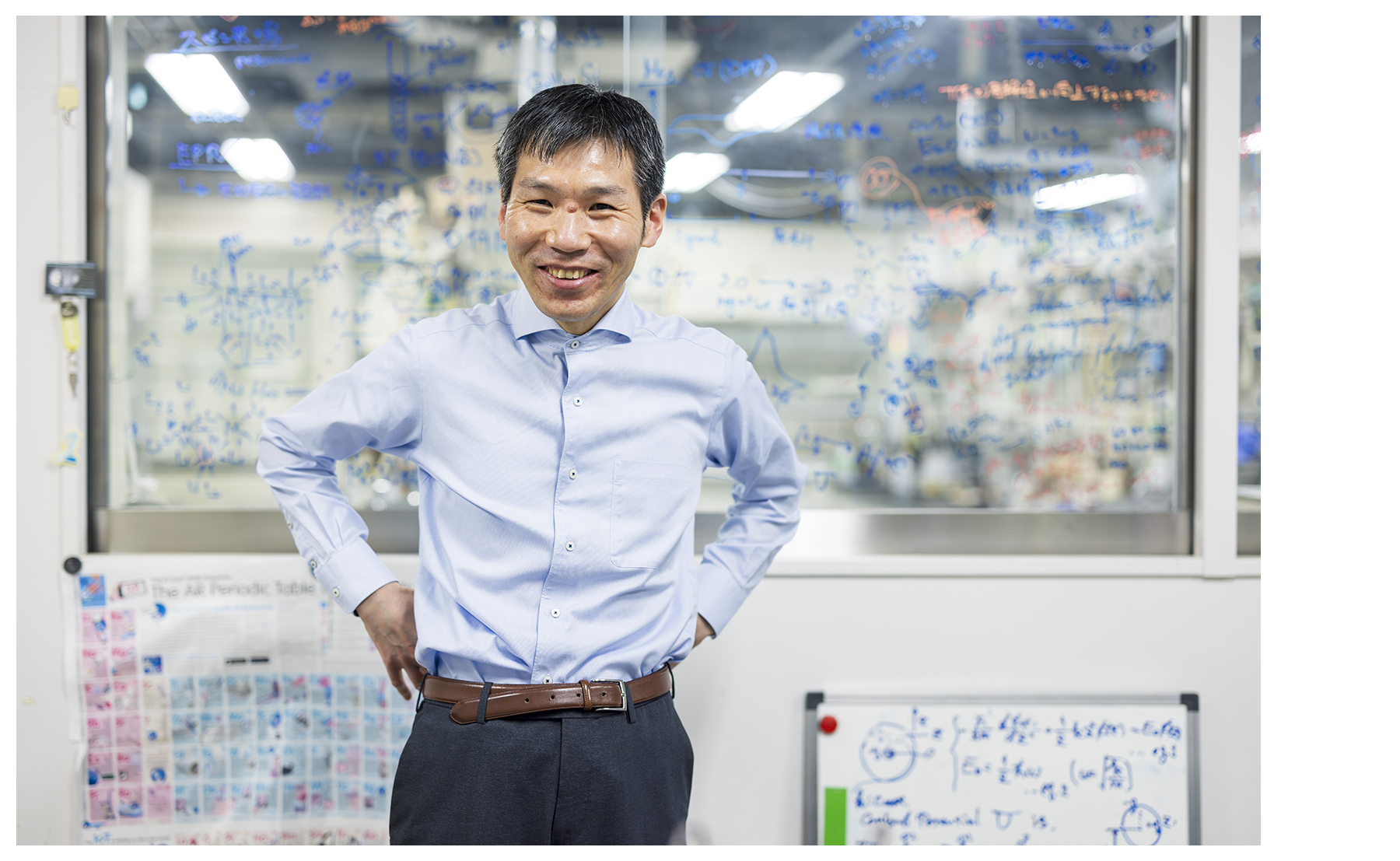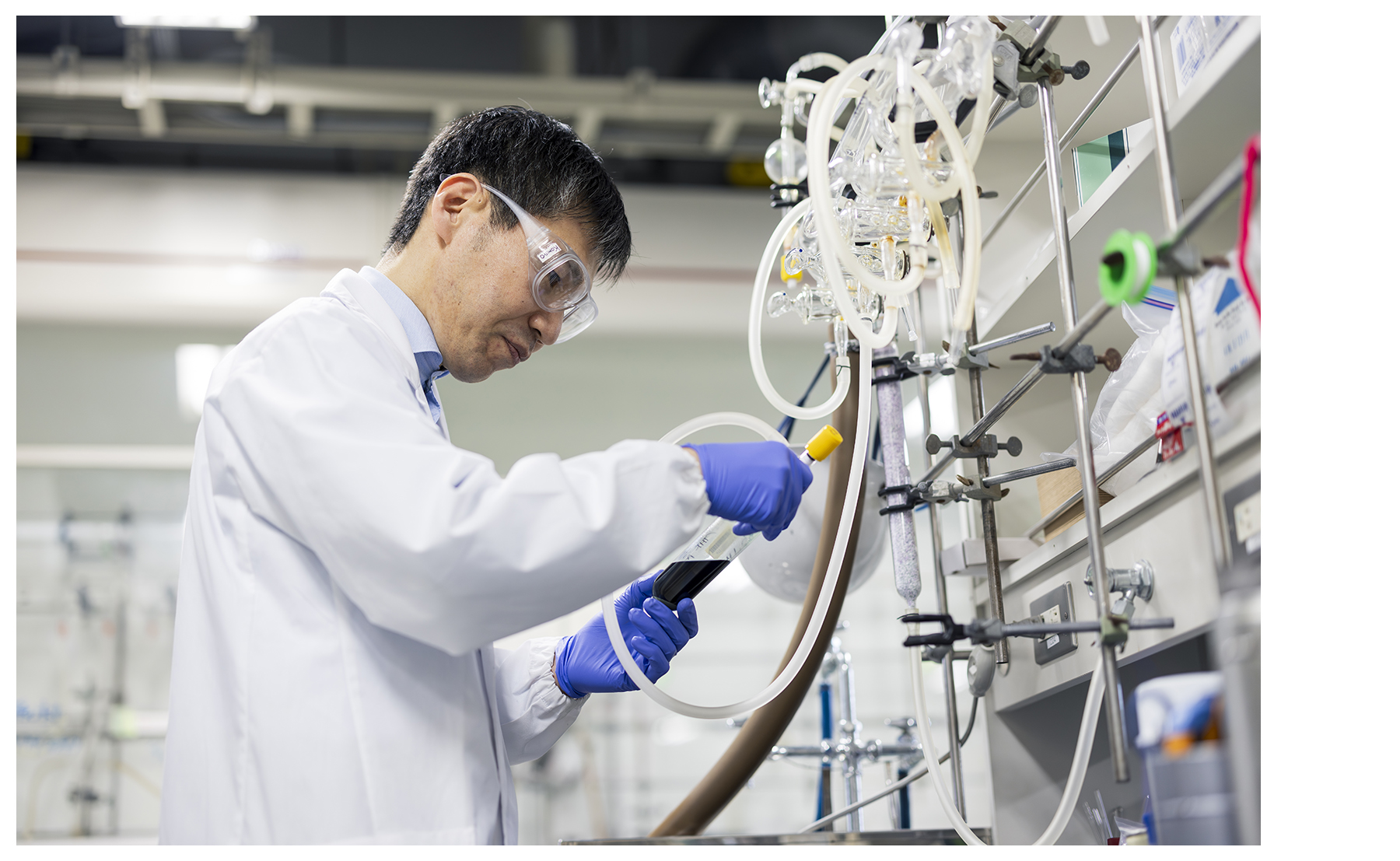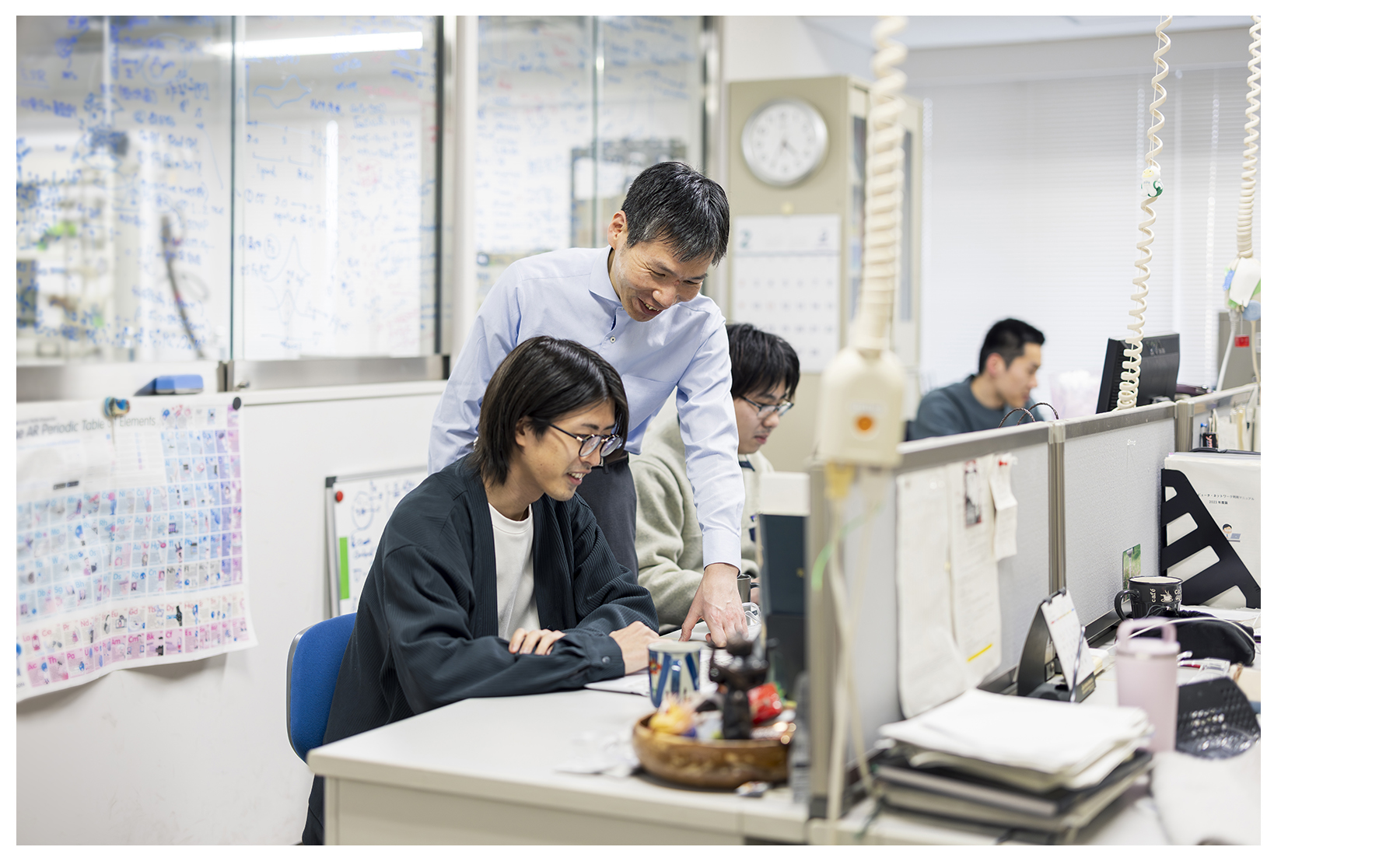I am studying synthesis of “metal complexes”, which are substances containing a metal center coordinated with atoms or molecules (called ligands), their structures and bonding in detail, and application of them as catalysts. Metal complexes can form new structures and bonds based on various combinations of metals and ligands, and these combinations can be used to create new functions. In particular, by carefully designing coordinating elements and frameworks of ligands, we can improve the catalytic activity for cleaving/forming molecular bonds and selectively to promote only a reaction giving a desired product.
Recently, I am interested in developing metal-complex catalysts that can contribute to sustainability by utilizing earth-abundant metals (iron, copper, manganese, etc.). Specifically, in order to increase the activity of such catalysts, I am engaged in experimental research in collaboration with students and the leading professor of the affiliated laboratory focusing on “the use of ligands with electro-positive silicon, which have strong electron-donating ability”, and on “multi-nuclear metal complexes (clusters) in which multiple metal centers participate in reaction progress”.




- Name:Takashi KOMURO
- Position:Lecturer of Department of Chemistry
- Laboratory:Inorganic Chemistry Laboratory
- Hometown:Ibaraki
- A book I've been reading recently:Heinrich Schliemann “La Chine et le Japon au temps présent”
- Research area:Coordination Chemistry, Organometallic Chemistry
- Posted Date:Jul 2, 2025
1.What kind of the research are you doing?
2.What is the reason for starting your study?
Because I grew up in a countryside, I was often exposed to nature in my daily life, and I have had a strong interest in science since elementary school. In particular, thanks to the guidance of my elementary, junior high, and high school science teachers, I was blessed with opportunities for experiments, observations, and hands-on experience, which helped me decide on a career in science. Since I was interested not only in chemistry, but also in geology, biology, astronomy, and other fields in science, I honestly had a hard time deciding which path to take when choosing my major. I ultimately chose chemistry because I was attracted to the possibility of designing and synthesizing new molecules by myself, which are not directly visible to the naked eye, and because I liked chemical experiments. Finally, under the guidance of professors in my first laboratory, I was attracted by the beautiful structures and colors of metal complexes and the complexity of elemental combinations, and I wanted to synthesize such complexes myself, which led me to my current field of specialization.
3.Message for prospective students
Universities offer a high degree of freedom in learning and research to conduct inquiry to clarify our questions and interests. However, research often does not proceed as expected because it targets “things that we don't know”, and also requires logic and expertise in its content. Nevertheless, underlying such research is a genuine sense of wonder and fascination with nature and phenomena as well as the joy of understanding of reasons for research issues, and I personally believe that such sensibilities are also important. In my own research, obtaining complexes with desired structures and catalytic functions is often difficult and requires trial and error. However, in rare cases, metal complexes with beautiful structures or unexpected reactivity can be obtained, and this gives me the energy to continue my research without giving up. I would like to recommend that those who are interested in research at the faculty of science deepen their interest in natural science through contact with familiar nature and through hands-on experience conducting experiments (e.g., in school classes and public lectures at universities).
The Faculty of Science at Tohoku University, located in Aobayama, is equipped with state-of-the-art research facilities and surrounded by greenery, providing a fulfilling environment for creative research. The unique feature of this faculty is that you can receive a generous education with direct guidance from professors who are conducting the world's most advanced research. If you are interested, please participate in the open campus and events with mock lectures and social events (“Burarigaku”).

